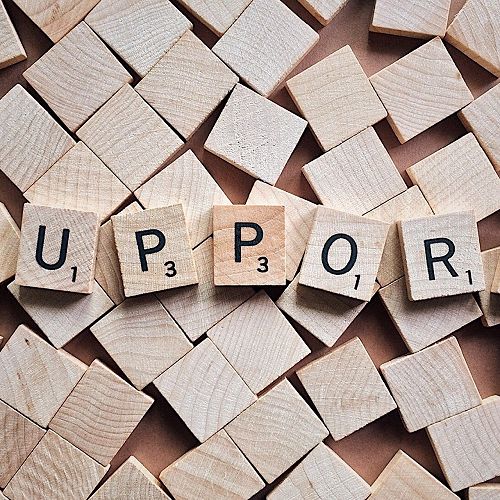Contents


Who can help at school
We care about you and want to help you. Please reach out when you need us.
Visit this article
Spiritual Wellbeing
Spiritual well-being, particularly in the context of a relationship with God, holds great significance for secondary students'. Adolescence is a time of self-discovery and identity formation, and a strong spiritual foundation can provide a sense of purpose and guidance. A relationship with God can offer solace during challenging times, instill moral values, and foster a sense of responsibility toward oneself and others. It provides a framework for understanding the world and encourages the development of empathy, compassion, and resilience. Nurturing spiritual well-being helps students' navigate the complexities of adolescence with a grounded and moral compass, contributing to their overall emotional and psychological growth.
Visit this article
Anxiety
Anxiety is a normal human emotion that can serve as a natural response to stress or potential threats. In moderation, it can even be beneficial, helping us stay alert and focused. However, when anxiety becomes overwhelming or persistent, seeking support and coping strategies is important to maintain a healthy balance and well-being.
Visit this article
Depression
Being depressed is more than feeling down for a day or two – it usually continues for weeks or months at a time. Depression can impact on people differently and can include a loss of interest in the things you used to enjoy, lack of motivation and ability to focus. There is a range of services and support available to help when you or someone you know is feeling depressed. Always remember you are braver than you believe, stronger than you seem, smarter than you think, and loved more than you know.
Visit this article

Grief
Grief can indeed be an incredibly challenging and painful experience. It often arises in response to a significant loss, such as the death of a loved one, the end of a relationship, or a major life change. During these times, it's entirely normal to feel a wide range of emotions, including sadness, anger, guilt, and confusion. There are a range of services and support available when you or someone you know is experiencing grief and loss.
Visit this article
Be kind to yourself
Being kind to yourself is of utmost importance during the teenage years. Adolescence is a time of significant growth, self-discovery, and challenges. Treating yourself with kindness cultivates self-esteem, resilience, and mental well-being. By practicing self-compassion, you create a foundation of self-love that helps you navigate the ups and downs of life. Embracing your imperfections, forgiving yourself for mistakes, and acknowledging your efforts fosters a positive self-image and healthy emotional development. Remember, showing kindness to yourself isn't selfish; it's a crucial step towards building a strong sense of identity and a bright future.
Visit this article
5 Ways to Wellbeing
Research shows there are five simple things you can do as part of your daily life – at school and at home – to build resilience, boost your wellbeing and lower your risk of developing mental health problems. These simple actions are known internationally as the Five Ways to Wellbeing.
Visit this article
Cyber safety
Cyber safety is vital for protecting you from online threats, such as cyberbullying and online predators, and ensuring a secure learning environment. It empowers you with the knowledge and skills to navigate the digital world safely, fostering responsible online behavior and safeguarding your personal information.
Visit this article
Healthy friendships
Healthy friendships are essential for our overall well-being and happiness. They provide us with emotional support, companionship, and a sense of belonging. Good friends can boost our self-esteem, reduce stress, and offer valuable perspectives on life's challenges. They encourage us to make positive choices, promote personal growth, and help us navigate difficult times.
Visit this article
Worried about someone
Even if you are close to someone, it can sometimes be hard to tell how much emotional pain they are in and whether they need help; and it can be equally as hard recognising it in yourself. Often, it’s something small that can make you think something isn’t quite right – often that hunch will be right. You might see it in yourself or in someone else, or someone could see it in you. There is a range of services and support available to help when you are worried about someone else or yourself.
Visit this article
Self-harm
Self-harm is when someone does something to hurt themselves on purpose, like cutting, burning, taking pills, hitting, or using objects to hurt themselves. It can be a way of coping, managing stress, anxiety, low mood or when feeling overwhelmed. There is a range of services and support available to help find alternatives to self-harm.
Visit this article
Harm prevention
There is a range of skilled services and support available to help keep people well and build resilience, recognise and respond to distress, address risk factors associated with suicide, and empower families, whānau/aiga and communities to support each other.
Visit this article
Harassment
If you think something is not right, please report it. You can also report anything to your HOH or our counsellors.
Visit this article
Self help
Here are some mental health and wellbeing apps and useful links to websites. Mobile phone apps can be a useful tool for helping you to manage anxiety, stress, depression, and emotional wellbeing.
Visit this article
Exercise
Making exercise an enjoyable part of your everyday life may be easier than you think.
Visit this article
Sleep
Sleeping well directly affects your mental and physical wellbeing. Not getting enough sleep can take a serious toll on your ability to focus, enjoy the things you like doing, energy levels, productivity and emotional balance.
Visit this article
Food
Eating a healthy diet is not about strict limitations, staying unrealistically thin, or depriving yourself of the foods you love. Rather, it’s about feeling great, having more energy, improving your health, and boosting your mood.
Visit this article
Vaping, smoking, drugs and alcohol
Vaping has not been around long enough to know the full health implications, however scientists have stated that fresh air is the best for your lungs.
Visit this article
Māori Hauora
Waiho i te toipoto, kaua i te toiroa Let us keep close together, not far apart.
Visit this article
Pasifika Wellbeing
Talofa Lava, Kia Orana, Mālō e lelei, Ni sa bula vinaka, Fakaalofa lahi atu, Mālō ni and Kia ora koutou.
Visit this article
LGBTQIA+
At Villa Maria College, we embrace and celebrate everyone, including LGBTGIA+ individuals. We believe in creating an inclusive and welcoming environment where every student feels valued and respected for who they are.
Visit this article


Whānau support
We can all use a bit of support at some time in our lives. There is a range of services and support for whānau/aiga who are experiencing challenges or would like someone to talk to.
Visit this article
Parenting
In current times, parenting faces a unique set of challenges amplified by rapid technological advancements and shifting societal norms. Balancing screen time and ensuring responsible online behavior has become increasingly complex as children are immersed in digital environments from an early age. Navigating the ever-evolving landscape of social media and online interactions requires parents to foster both digital literacy and emotional well-being. Additionally, the ongoing global health concerns have prompted new considerations for children's physical and mental health, requiring parents to adapt their approaches to education, socialisation, and overall family dynamics to ensure a resilient and balanced upbringing. Below are some websites that can help support you on your parenting journey.
Visit this article
Staff Wellbeing
Taking care of your own well-being is paramount, especially when the demands of teaching are added to the complexities of everyday life. Remember, you cannot pour from an empty cup. Prioritising self-care through exercise, mindfulness, adequate rest, and seeking support when needed allows you to be at your best for both your students and yourself. By setting healthy boundaries, managing stress, and practicing self-compassion, you not only enhance your own resilience but also set a powerful example for your students.
Visit this article